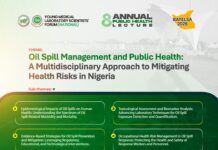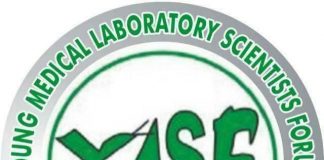The West African Postgraduate College of Medical Laboratory Science (WAPCMLS) has expressed deep concern over the National Universities Commission’s (NUC) recent directive, which excludes the Medical Laboratory Science Council of Nigeria (MLSCN) from participating in the accreditation of medical laboratory science programs in Nigerian universities.
Read also: WAPCMLS Gets another Fellowship Training Centre
In a detailed article authored by Prof. M.A. Muhibi, Chairman of the Nigeria Chapter of WAPCMLS, the College emphasized that this exclusion undermines the statutory responsibilities of MLSCN as outlined in the MLSCN Act (CAP M25, Laws of the Federation of Nigeria, 2004).
Read the article in full below:
“Safeguarding Public Health and Professional Standards: The Need for MLSCN’s Inclusion in Regulatory Accreditation.
The recent circular issued by the National Universities Commission (NUC) titled Stoppage of Multiple Accreditation of Academic Programmes by Professional Bodies in Nigerian Universities (Ref: NUC/ES/138/Vol.65/202, dated 20th May 2025) has generated significant concern among stakeholders in the field of Medical Laboratory Science in Nigeria.
Read also:WAPCMLS gets the nod from ECOWAS Assembly of Health Ministers
While the directive aims to streamline accreditation procedures and avoid duplication, it is both disappointing and alarming that the Medical Laboratory Science Council of Nigeria (MLSCN) was excluded from the list of professional regulatory bodies granted waivers to continue their statutory oversight responsibilities in collaboration with the NUC. This exclusion, we assert, is misguided and inconsistent with the provisions of the MLSCN Act (CAP M25, Laws of the Federation of Nigeria, 2004), which unequivocally empowers the Council to regulate the training, certification, and practice of medical laboratory science in Nigeria.
A Statutory Mandate Rooted in Law The MLSCN Act mandates the Council to:
- Regulate the training curricula, standard of knowledge, and competency required of graduates entering the profession.
- Inspect and accredit training institutions, including faculties and departments where Medical Laboratory Science is taught.
- License qualified graduates to practice, based on the Council’s recognition of their academic and professional readiness.
This function cannot be legally or logically outsourced to another agency or solely dependent on the NUC without jeopardizing the quality and safety of laboratory services in Nigeria.
Dangerous Implications for Public Health
The training of medical laboratory scientists is not a theoretical endeavor. It requires strict professional benchmarking, standardized competencies, and clinical alignment with healthcare delivery systems. Excluding MLSCN from accrediting training institutions opens the door to poorly trained graduates, unmonitored programmes, and ultimately the emergence of quacks—a dangerous outcome that could threaten diagnostic accuracy, treatment decisions, and public health at large.
If MLSCN is denied the authority to monitor training, then:
- At what point will the Council assess the competence of graduates?
- On what basis will licenses be granted or denied?
- Who ensures that training institutions meet the Council’s benchmark for human and material resources?
Appeal to the Ministry of Education and NUC
We call on the Federal Ministry of Education and the National Universities Commission to urgently revisit this oversight. It is imperative that the Ministry:
- Recognize that regulatory roles defined by law cannot be neutralized by administrative fiat.
- Acknowledge that the MLSCN’s involvement in accreditation is not duplication, but a legal necessity tied to professional licensure and public protection.
- Engage with stakeholders in the field of laboratory science before implementing decisions that affect training, practice, and the future of the profession.
Conclusion
Nigeria cannot afford to compromise the integrity of its health system by sidelining its statutory regulators. The Medical Laboratory Science Council of Nigeria must be reinstated among the professional bodies permitted to accredit training programmes in universities. This is not merely a procedural correction; it is a safeguard for public health, professional dignity, and national development.
We urge immediate action to align NUC directives with existing laws , prevent institutional overlap, and most importantly, to uphold the trust placed in professionals whose work directly affects the lives and wellbeing of Nigerians.
By Prof. M.A. Muhibi
Chairman, Nigeria Chapter, West African Postgraduate College of Medical Laboratory Science”
Follow us on our socials
- Twitter 👉 https://www.twitter.com/zackmensah
- Facebook page 👉 https://www.facebook.com/thenigerianmedlabscientist
- YouTube Channel👉 https://youtube.com/@Nigerianmedlabscientist
- WhatsApp Channel 👉 Click here
Thank you for your support.

















